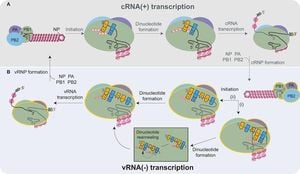Germany finds itself on the brink of political change following early Bundestag elections held on February 23, where the Christian Democratic Union (CDU), led by Friedrich Merz, triumphed over the Social Democratic Party (SPD) and the Alternative for Germany (AfD). With Merz guiding the CDU to approximately 29% of the vote, this outcome marked the return of the CDU to the forefront of German politics, following years of opposition.
The SPD, currently led by Chancellor Olaf Scholz, experienced a staggering decline, securing about 16% of the vote, its worst showing since World War II. Scholz described the results as bitter, admitting responsibility for the SPD's defeat and reinforcing the party's commitment to democratic principles. "We live in a democratic country," he remarked, acknowledging the need to respect the voters' wishes.
Meanwhile, the far-right AfD, under the leadership of Alice Weidel, captured second place with around 20% of the votes, achieving their strongest outcome ever. Weidel has since expressed her party's eagerness to participate in coalition negotiations, declaring, "We are open to coalition negotiations... otherwise, there will be no possibility to change the policy."
Despite the AfD’s success, there is significant hesitance among other parties to collaborate with them. Merz has consistently ruled out forming any coalition with the AfD, emphasizing plans to establish viable alternatives for governance. Instead, he has indicated interest in discussions with the SPD and the Greens. Merz announced, "Today we will celebrate, and from tomorrow, we will start working," signaling his intent to mobilize quickly and effectively, as Germany faces pressing challenges around governance and socio-economic policies.
This election holds historical significance for Germany as it highlights shifting political landscapes, particularly with the rise of the AfD. The party’s increasing popularity raises concerns, especially because they oppose many of the established policies. The electorate displayed remarkable engagement, with a turnout of 84%, the highest since 1990, indicating their intense interest and concern over pivotal issues like the economy, migration, and national security.
With the government dissolution primarily attributed to disagreements on economic priorities, voters voiced frustration over the previous administration's inability to address challenges adequately. Both immigration and security policies have taken center stage recently, especially after several high-profile violent incidents linked to migrants. These incidents significantly impacted public sentiment, fostering support for conservative policies from parties like the CDU and AfD, which promise stricter migration control and economic reforms.
Merz plans to prioritize Germany's independence from the United States, stating, "For me, achieving independence from the U.S. is an absolute priority." He also hinted at discussions around potential peacekeeping deployments to Ukraine, showcasing his stance on international relations and Germany’s role on the global stage. Merz’s leadership style contrasts sharply with his predecessor, Angela Merkel, marking the CDU's strategic shift toward more assertive domestic policies.
The road to forming a coalition government will undoubtedly be complex and fraught with challenges. Many political analysts speculated Merz's CDU might find it difficult to gather sufficient support without collaborating with the AfD. The SPD, previously the ruling party, finds itself reevaluated and diminished, amid calls for introspection and restructuring. Its leadership must confront harsh realities and prepare to re-engage voters who feel disillusioned with current policies.
With this election, Germany enters uncharted waters, poised for changes to its political fabric. The newly elected leaders will have the responsibility to navigate these shifts, prioritizing the needs and concerns of the German populace. The direct handling of coalition talks will be key to setting the foundation for the future, as parties strategize on forming stable government structures.
One thing is clear: the results of the February elections signal significant shifts and demand fresh approaches to governance. How this will play out, and which coalition emerges as dominant, will shape Germany's political future for years to come.



